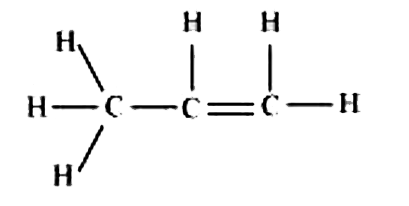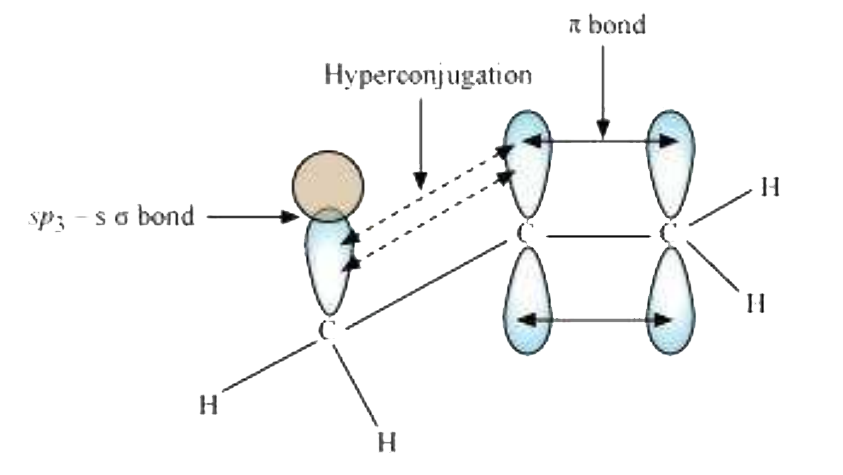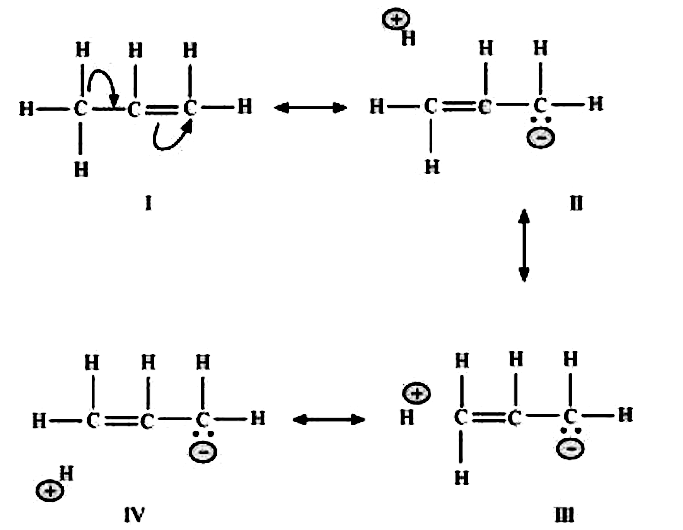Explain why alkyl groups act as electron donors when attacted to a π−system.
Video Solution
Text Solution
When an alkyl group is attached to a n system, it acts as an electron-donor group by the process of hyperconjugation. To understand this concept better, let us take the example of propene.

In hyperconjugation, the sigma electrons of the C–H bond of an alkyl group are delocalised. This group is directly attached to an atom of an unsaturated system. The delocalisation occurs because of a partial overlap of a sp3 –s sigma bond orbital with an empty p orbital of the π bond of an adjacent carbon atom.
The process of hyperconjugation in propene is shown as follows:

This type of overlap leads to a delocalisation (also known as no-bond resonance) of the n electrons, making the molecule more stable.

|
Topper's Solved these Questions
- ORGANIC CHEMISTRY- SOME BASIC PRINCIPLES AND TECHNIQUESBOOK - NCERTCHAPTER - ORGANIC CHEMISTRY- SOME BASIC PRINCIPLES AND TECHNIQUESEXERCISE - EXERCISE
40 Videos
- HYDROGENBOOK - NCERTCHAPTER - HYDROGENEXERCISE - EXERCISE
36 Videos
- REDOX REACTIONSBOOK - NCERTCHAPTER - REDOX REACTIONSEXERCISE - EXERCISE
30 Videos
Similar Questions
Knowledge Check
Which of the following alkyl groups exerts maximum hyperconjugation when bonded to an unsaturarted system?
A(CH3)2CH−BCH3CH2−CCH3−D(CH3)3C−
Explain why cobalt choride acts as a humidity indicator.
View SolutionWhy do NH3 and H2O act as electron pair donors?
View SolutionExplain why the amino group in aniline acts as a powerful activator and o- and p- director towards electrophilic substitution reaction.
View SolutionExplain why cobalt choride acts as a humidity indicator.
View SolutionExplain why alkyl halides undergo hydrolysis more easily as compared to aryl halides?
View SolutionExplain why is OH group in phenols more strongly held as compared to OH group in alcohols ?
View SolutionExplain why is OH group in phenols more strongly held as compared to OH group in alcohols ?
View Solution
